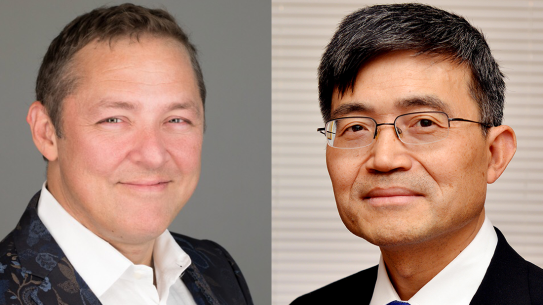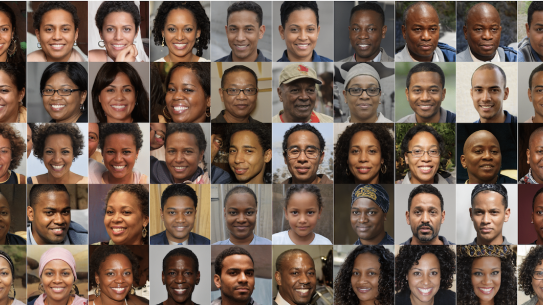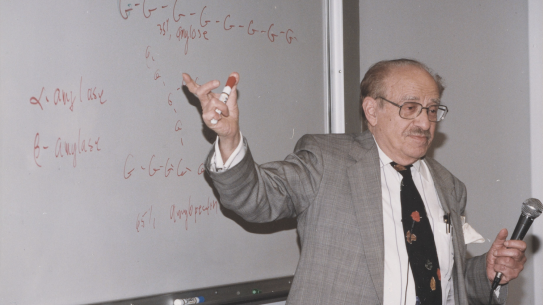A group of expert alumni weigh in on the state of private spaceflight
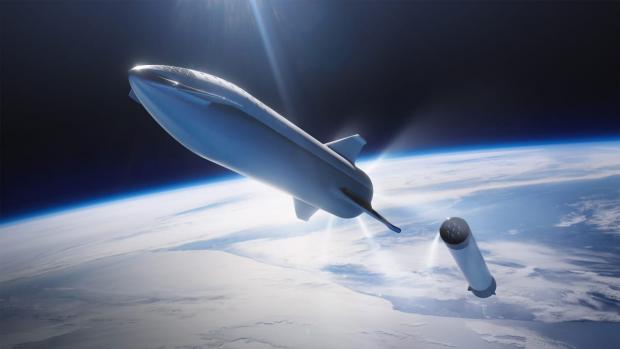
With Jeff Bezos, Richard Branson, and Elon Musk vying to make commercial space travel a reality, and a steady stream of exciting news emerging from their companies, we turned to a group of alumni to get their thoughts. From seasoned astronauts and longtime NASA engineers to those working at the most cutting-edge private enterprises in the cosmos, these NYU TandonMade experts had plenty to say.
Charles Camarda (’74)
Camarda, a Queens native, holds almost two-dozen awards for technical innovations and accomplishments during his 46-year service at NASA. After 22 years as a researcher at NASA’s Langley Research Center, he was selected as an Astronaut Candidate in 1996, and he logged more than 333 hours in space. He served as Director of Engineering at the Johnson Space Center and retired as Senior Advisor for Innovation and Engineering Development in 2018.
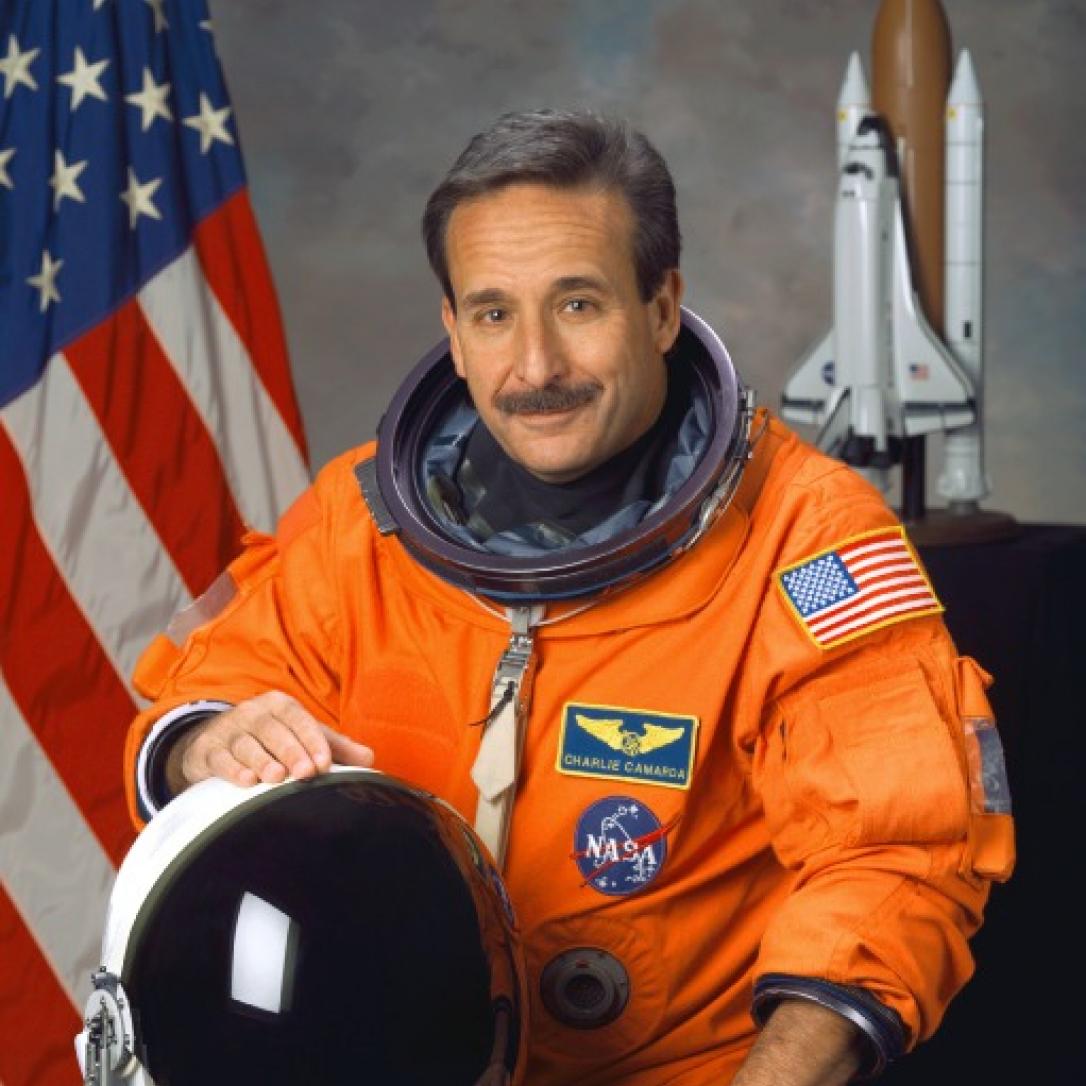
This is an exciting time; I think it can be compared to the early days of aviation when barnstorming pilots toured across the country to demonstrate their skill and to familiarize people with airplanes and flying. Today, private/commercial companies are now introducing more people to the possibilities of spaceflight, and are bringing new, diverse perspectives and creative ideas to solve the complex problems involved. That’s enormously valuable. After all, Astronauts have always been willing to take risks, but when commercial space travel becomes as commonplace as intercontinental flight, which it almost certainly will one day, families are going to want to know it’s safe. This is a very difficult problem that we have to solve. When the Space Shuttle retired in 2011 after 135 successful flights and over 30 years of service, it was still considered an experimental vehicle!
I’ll point out here that some of the debates going on right now are silly and detract attention from the magnitude of what’s being accomplished. Quibbling about whether space starts 50 miles out or 62, at the Karman line, for example, is actually meaningless; these flights qualify as spaceflights, and good for them! That said, there’s also been some discussion about whether once you’ve flown in space you can be called an astronaut. I certainly think there should be some type of recognition, maybe a plaque or a pin to commemorate the event, but Astronaut is a serious profession requiring years of training: you don’t call a private citizen that stops a crime a police officer or a passenger on a plane an airline pilot.
Daniel Carelli (’18)
Carelli, who majored in electrical engineering, has long wanted to be a part of the projects that push humanity’s intellectual capabilities beyond what was previously thought possible. That goal has led him to a career in hardware development at one of the world’s foremost space exploration companies.
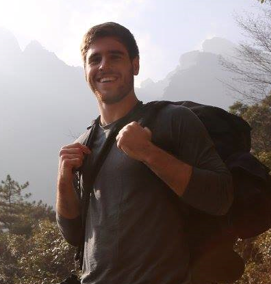
There is a lot of grumbling lately about billionaires flying into space, but what they’re doing has a grand purpose, and they’re thinking on a grand scale. Would people consider it a better use of money if they were buying up private islands? I think you have to consider that, historically, a lot of innovation has come about because those with money funded it; it wasn’t everyday people taking those first trips on the Concorde when it was flying at more than twice the speed of sound, for example. There will always be naysayers who point out everything that can go wrong or who argue about the wisdom of even undertaking something like this, but this is in our DNA as humans — we’re explorers, whether that’s on land, by sea, or in the air. We’re always going to strive to discover new worlds.
Devlin Chang (’21)
Chang, a recent graduate, majored in mechanical engineering and is embarking on his professional career.

I’ll be starting a job shortly as a Build Engineer at one of the private companies involved in the push for commercial space travel. I won’t name them here, because I’m speaking for myself and not as a representative of the company. That said, I think everyone there would agree that we’re in an incredibly exciting time. Bringing people to space and back used to be a challenge that took the combined effort of entire countries to overcome. Now we have private companies like my employer bringing astronauts to the International Space Station.
Space travel is no longer a domain that is solely dominated by government agencies but is becoming increasingly accessible to private civilians. These are remarkable achievements, and these companies are accelerating for even more. We’re still a long way off from normal people like you and me getting on a rocket, but hey, commercial air travel used to be prohibitively expensive too. Not only that, but these companies have considerable social media presence, and live streams of their events are available to everyone who has access to YouTube. We’re seeing launches fairly regularly, and I think that’s furthered interest in space exploration and STEM as a whole. It really feels like we’re on the cusp of something great, and I’m excited to see what comes next.
Daniel Chase Klass (’17)
An engineer at a major private space-exploration company, Klass is working towards revolutionizing how people interact with low-Earth orbit (and beyond) through the proliferation of interconnected satellite constellations.
Space exploration pushed the envelope in nearly every field of science and engineering, and sadly that has stalled for the past few decades. While the use case (tourism for Branson/Bezos and company) may not seem like an impactful application of billions of dollars and hours of work, the doors this new technology can open are nearly endless. From delivering life-saving medicine around the world in under 90 minutes, to facilitating cheap and reliable access to microgravity for the synthesis of revolutionary new medicines, mastering space flight is one of the most important things we can do to solve problems on the ground.
These companies create demand that can help continue pushing the envelopes in ways government-funded projects simply cannot. Whether it be space tourism (Blue/Virgin), private stations (Axiom), or creating globally connected internet (Starlink), the tech these companies need to develop to make this work will literally change the world. Right now, this is truly the most exciting time to be a space nerd.
Paolo Nespoli ('88, '89)
Nespoli, a native of Verano Brianza, a commune not far from Milan, came to Brooklyn after serving in the Italian Army to earn his Bachelor of Science in Aerospace Engineering and his Master of Science in Aeronautics and Astronautics. A former mission specialist with the Italian Space Agency, he has flown three times to the International Space Station and logged more than 300 days in space. An avid photographer he has been credited with taking some of the most iconic images of the views from the ISS and recently published the volume Inner Space: A Visual Exploration of the International Space Station, a collaboration with visual artist Roland Miller.
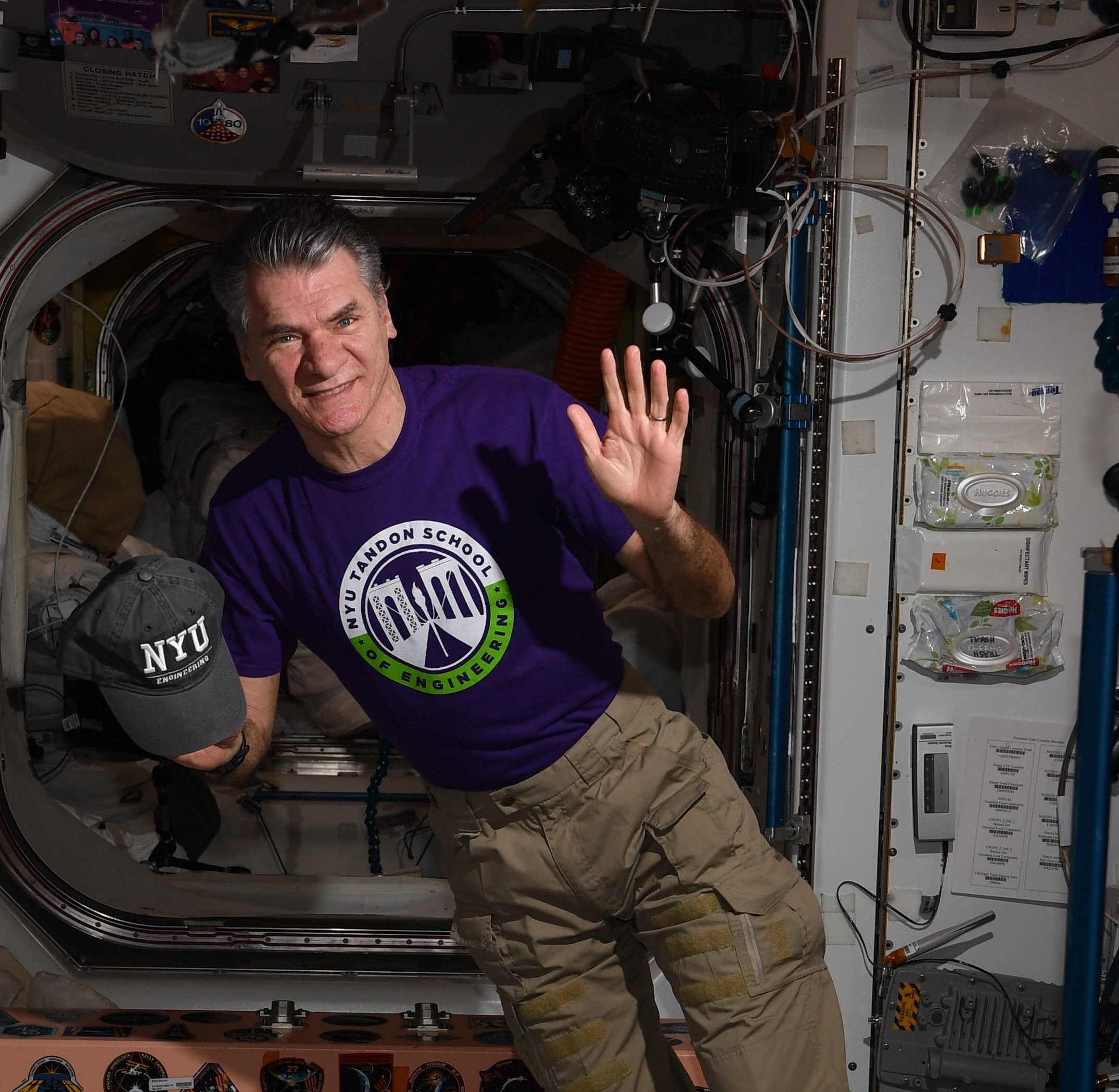
I always told anyone who asked what I was going to do when I grew up that I’d go to the moon, but really, the chances for a kid from a tiny town in Italy being able to do that were zero, probably less than zero! When I did go to space, after being chosen to fly as a Mission Specialist on the Space Shuttle Discovery, it was life changing. Anyone who has that chance gains entirely new perspectives on the world and their place in it. For one thing, you don’t see national borders from up there. The only border you can really see is the one between space and the atmosphere, and even that appears so thin that a breeze could blow it away. The age of commercial space travel is going to give more people an opportunity to experience something like what I experienced: one day theologians, teachers, and everyday citizens may find themselves inspired and transformed, and I couldn’t be more thrilled for them. The companies working on this are attracting some criticism in the media, but I think they’re doing something great.
John J. Zipay (’88)
Mr. Zipay is one of the few people on the planet who can say they’ve been affiliated for more than three decades with NASA, had a hand in the creation of the International Space Station (ISS), and helped shape the future of spaceflight with his work on the Space Shuttle and the Deep Space Gateway. As Deputy Chief of the Structures Branch at NASA’s Lyndon B. Johnson Space Center, he now supervises a team of engineers that provides technical support to both Boeing and SpaceX in the development of their Commercial Crew Program spacecraft, among many other projects.
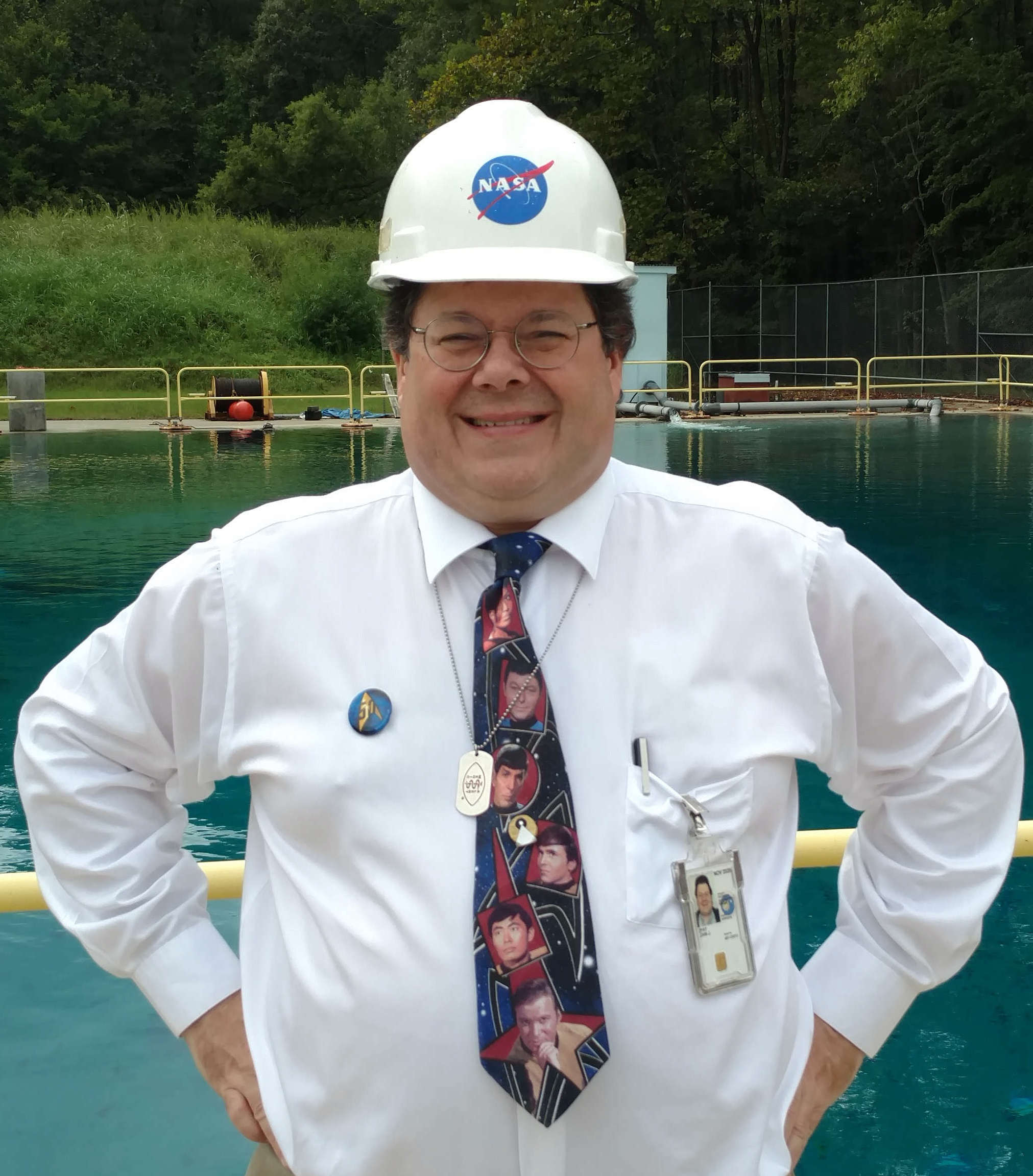
We’ve gotten to this point through a generational process. First, we went to the Moon. Then, we entered the eras of the early planetary probes (e.g., Voyager and Viking), the Shuttle and ISS Programs, the Hubble Telescope, more advanced Mars Rovers, and probes to the outer planets. Both commercial spaceflight and travel to the Moon and eventually to Mars are the next frontiers. NASA has done an incredible job, but private companies should be involved as well. Almost all of NASA’s major spacecraft are built by private companies, and they’re already carrying cargo and crew to the ISS for NASA. Private space stations where manufacturing can take place might be built at some point. Commercial space endeavors free NASA to use its resources for other, even more exciting things.
As humans, we celebrate accomplishment, and we especially acknowledge “firsts” made by pioneering figures like both the Wright Brothers and Amelia Earhart. Bezos and Branson are the first to fly humans on suborbital missions without sponsorship from a government, and they have earned a place in that group. Musk risked his fortune to develop a new launch capability. After proving that his Falcon rocket functioned, SpaceX earned the government contracts that have enabled the company to provide a commercial human spaceflight capability. I think it’s especially noteworthy that while not all of them were born in America, they chose to set up their companies and conduct their research here.
We’re in a new era that reminds me of something that President John F. Kennedy said while addressing Congress back in 1961: “Space is open to us now, and our eagerness to share its meaning is not governed by the efforts of others. We go into space because whatever mankind must undertake, free men must fully share.” (And free women, of course, please forgive the vernacular of the time.) Of course, there are those who now say that we have too many problems here on our own planet to be devoting energy to spaceflight. I’d remind them that the country was in serious turmoil during the 1960s; we had social unrest and assassinations, but that didn’t stop us from doing incredible things like sending Apollo 8 around the Moon during Christmastime, 1968, and landing on the Moon a little less than seven months later.



